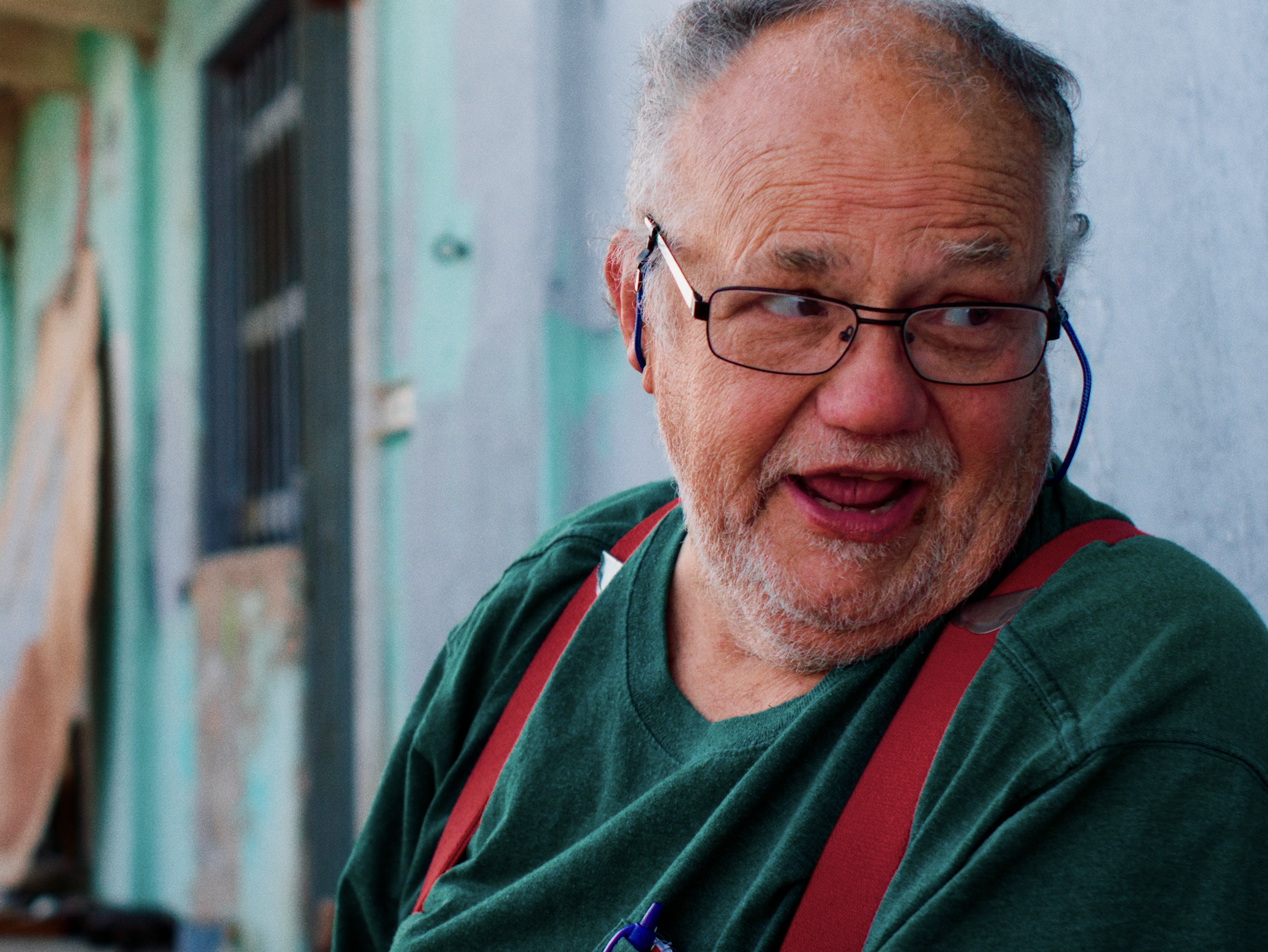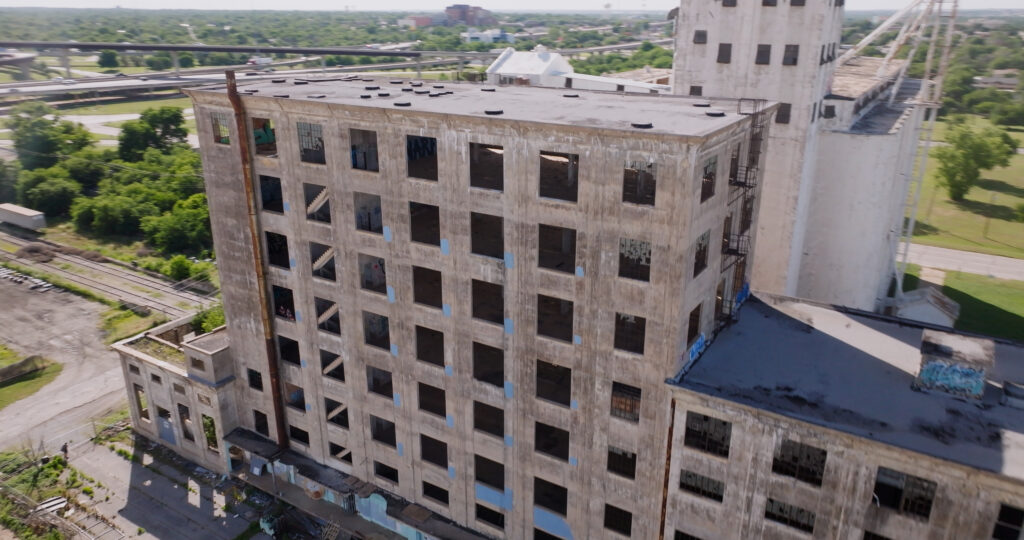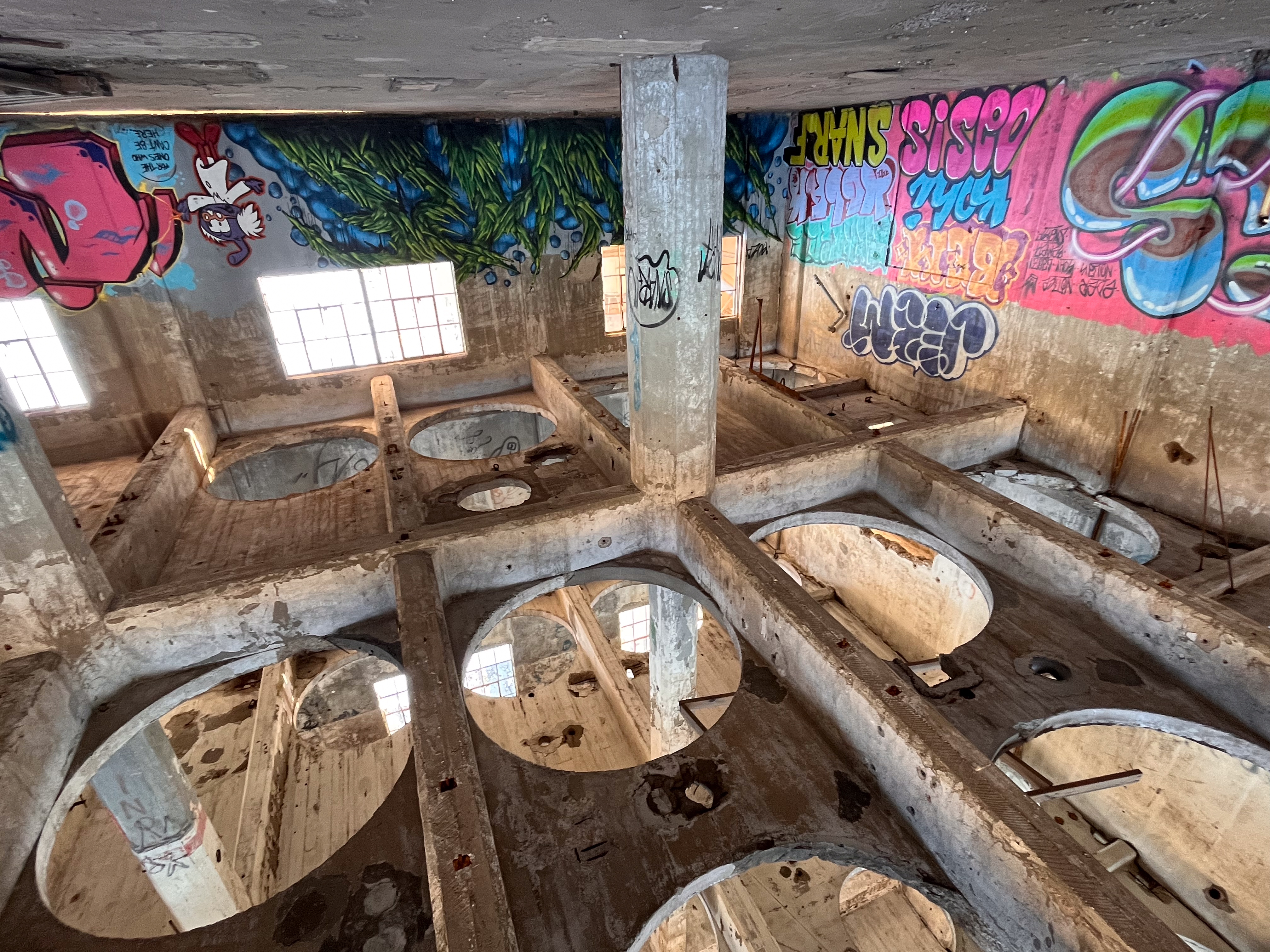

Rocketship is a documentary about navigating life, building legacies, and accepting all of the joy, burden, and pain that comes with being human.
The film delves into poverty, trauma, police brutality, history, and alcoholism through the eyes of a man named Rocket, who lives on the fringes of society in rural Wichita Falls, Texas. Despite having very little, Rocket chooses to give what he does have to those who need it more. His life is shaped by hardship, yet he finds ways to help others in need, revealing a sense of resilience and quiet altruism.
At the heart of Rocket’s story is a 92,000-square-foot eyesore of a property he maintains for reasons that aren’t entirely clear. This massive, decaying space adds to the mystery of his character, raising questions about why he holds on to it in a place where so many struggle to get by. Through Rocket’s experiences, the film paints a human picture of survival, kindness, and the complicated social realities of small-town life, offering a raw look at what it means to live on the margin.
The location of the film, along with the biases formed in today’s polarized cultural climate, plays a significant role in how viewers interpret Rocket’s story. Living in rural Texas, Rocket is a complex man whose appearance and surroundings might lead viewers to form assumptions before he even speaks. But as the film unfolds, those expectations are shattered. Rocket’s character is revealed with honesty, showing the depth of his humanity and breaking down stereotypes often tied to rural life in America.
Wichita Falls itself mirrors Rocket’s fringe existence. It’s a city often ridiculed, even listed by Texas Monthly as having one of the worst occupations in the state—being a Wichita Falls resident. The city is aware of the forces stunting its growth, but despite this, citizens and stakeholders frequently reject efforts toward change. This reluctance adds another layer to the film, highlighting the complexities of life in a place resistant to transformation.
“Don’t apply. It’s hard work living in Wichita Falls. Most people would rather be charged by rhinos. Wichita Falls surpasses even Waco as the pits. At least Waco has the Brazos River, the Texas Ranger Museum, and the Lone Star Tavern. Wichita Falls is next to nowhere and all it has is bad weather.”
Texas Monthly, Richard West, 1978
Built in 1919, the building was once a mill owned and operated by General Mills, now standing as a relic of early 20th-century industrial design. Its sprawling, maze-like structure is a testament to the craftsmanship of that era. Since 2017, Rocket has opened the space to regional graffiti artists, allowing them to transform its walls into an evolving canvas. Here, they practice their craft, honing their skills in a place that feels as raw and untamed as their art. Many of these artists have gone on to build portfolios within these walls, earning jobs and recognition through the work they created in Rocket’s building, which has become a place of unexpected opportunity.

Though the film tackles serious issues, it doesn’t shy away from the full range of its characters’ inner lives—the good and the bad. It’s a story that is, at times, fun and symbolic, while also heart-wrenching and anxiety-inducing. Yet, beneath it all, there’s a sense of hope, offering a quiet encouragement to those who need to hear that “tomorrow will be better.” The film’s emotional shifts reflect the complexity of human experience, reminding viewers that even in the darkest moments, there’s a chance for something better on the horizon.
– Jonathon
